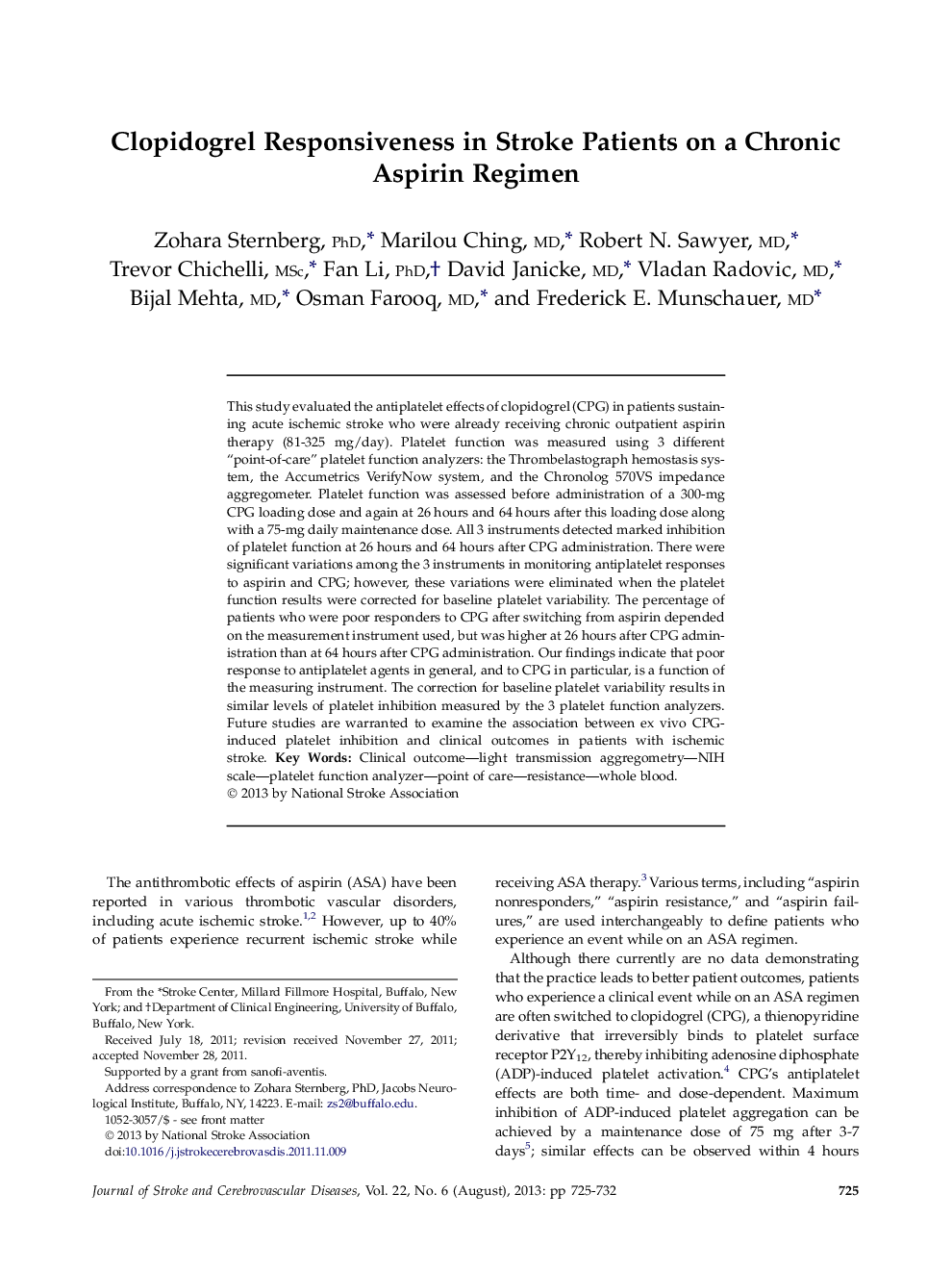| Article ID | Journal | Published Year | Pages | File Type |
|---|---|---|---|---|
| 2706325 | Journal of Stroke and Cerebrovascular Diseases | 2013 | 8 Pages |
This study evaluated the antiplatelet effects of clopidogrel (CPG) in patients sustaining acute ischemic stroke who were already receiving chronic outpatient aspirin therapy (81-325 mg/day). Platelet function was measured using 3 different “point-of-care” platelet function analyzers: the Thrombelastograph hemostasis system, the Accumetrics VerifyNow system, and the Chronolog 570VS impedance aggregometer. Platelet function was assessed before administration of a 300-mg CPG loading dose and again at 26 hours and 64 hours after this loading dose along with a 75-mg daily maintenance dose. All 3 instruments detected marked inhibition of platelet function at 26 hours and 64 hours after CPG administration. There were significant variations among the 3 instruments in monitoring antiplatelet responses to aspirin and CPG; however, these variations were eliminated when the platelet function results were corrected for baseline platelet variability. The percentage of patients who were poor responders to CPG after switching from aspirin depended on the measurement instrument used, but was higher at 26 hours after CPG administration than at 64 hours after CPG administration. Our findings indicate that poor response to antiplatelet agents in general, and to CPG in particular, is a function of the measuring instrument. The correction for baseline platelet variability results in similar levels of platelet inhibition measured by the 3 platelet function analyzers. Future studies are warranted to examine the association between ex vivo CPG-induced platelet inhibition and clinical outcomes in patients with ischemic stroke.
